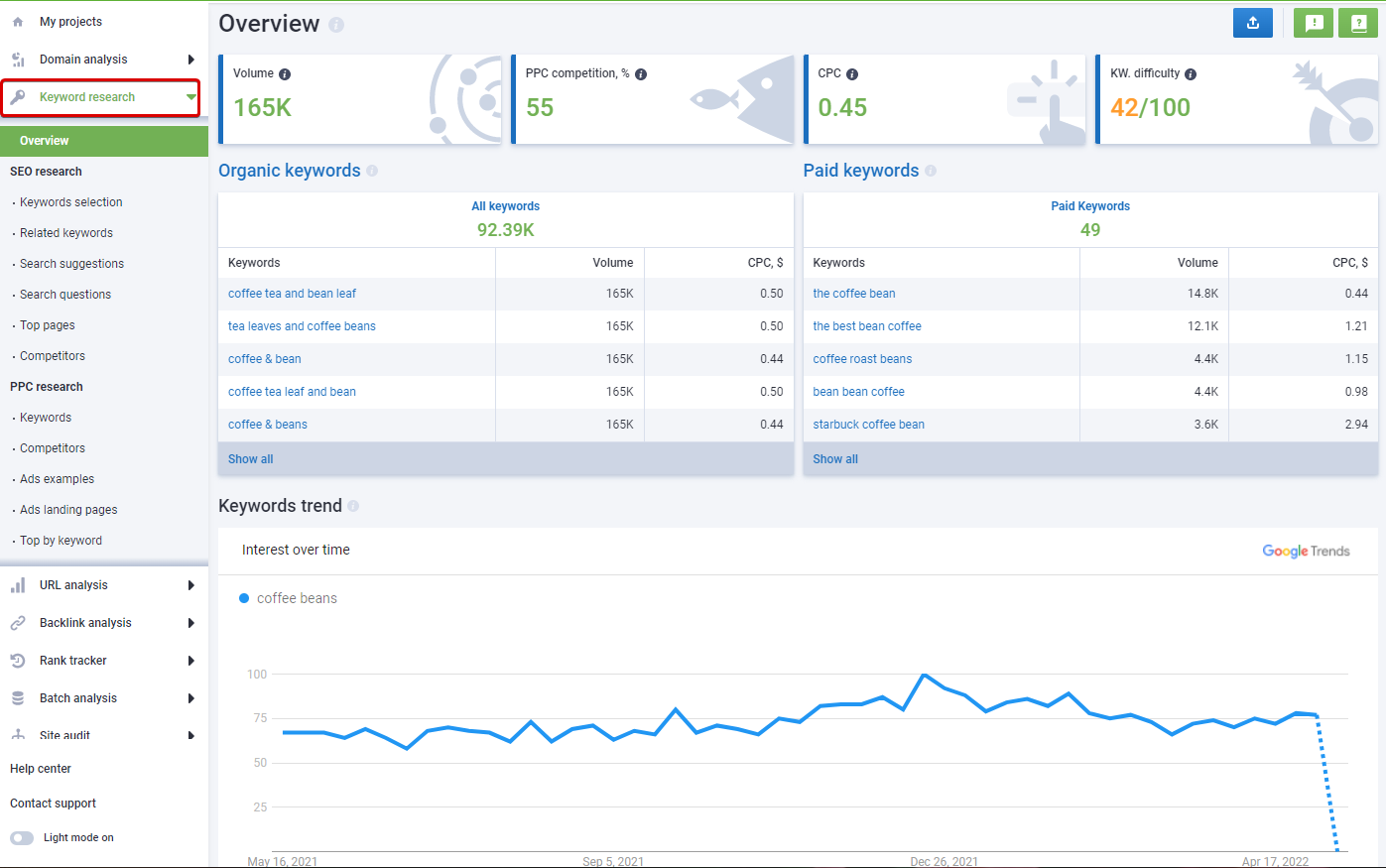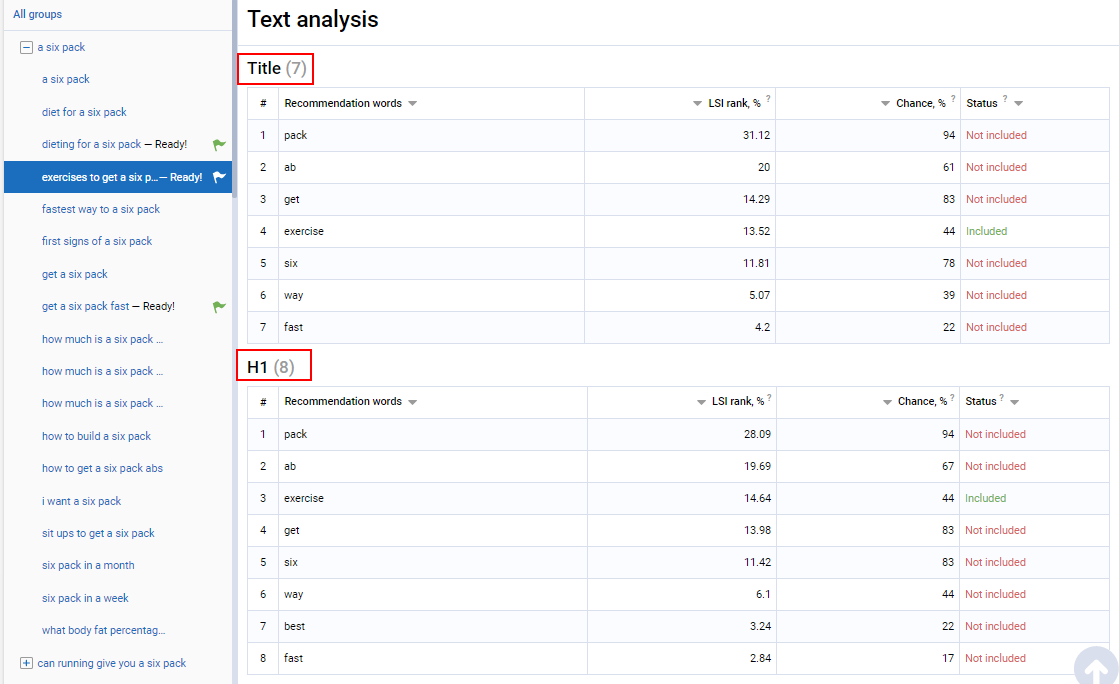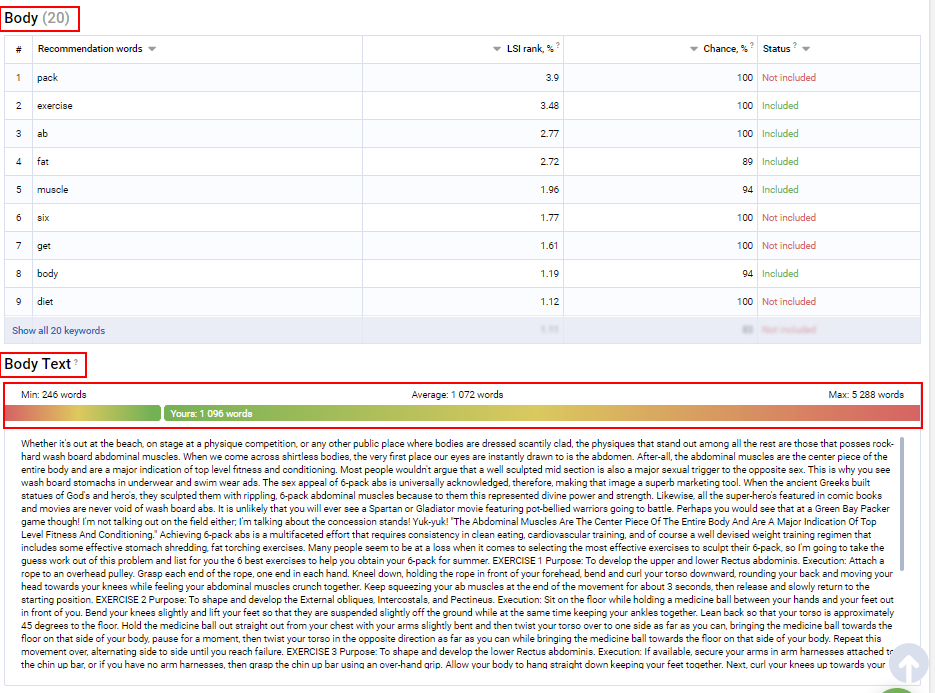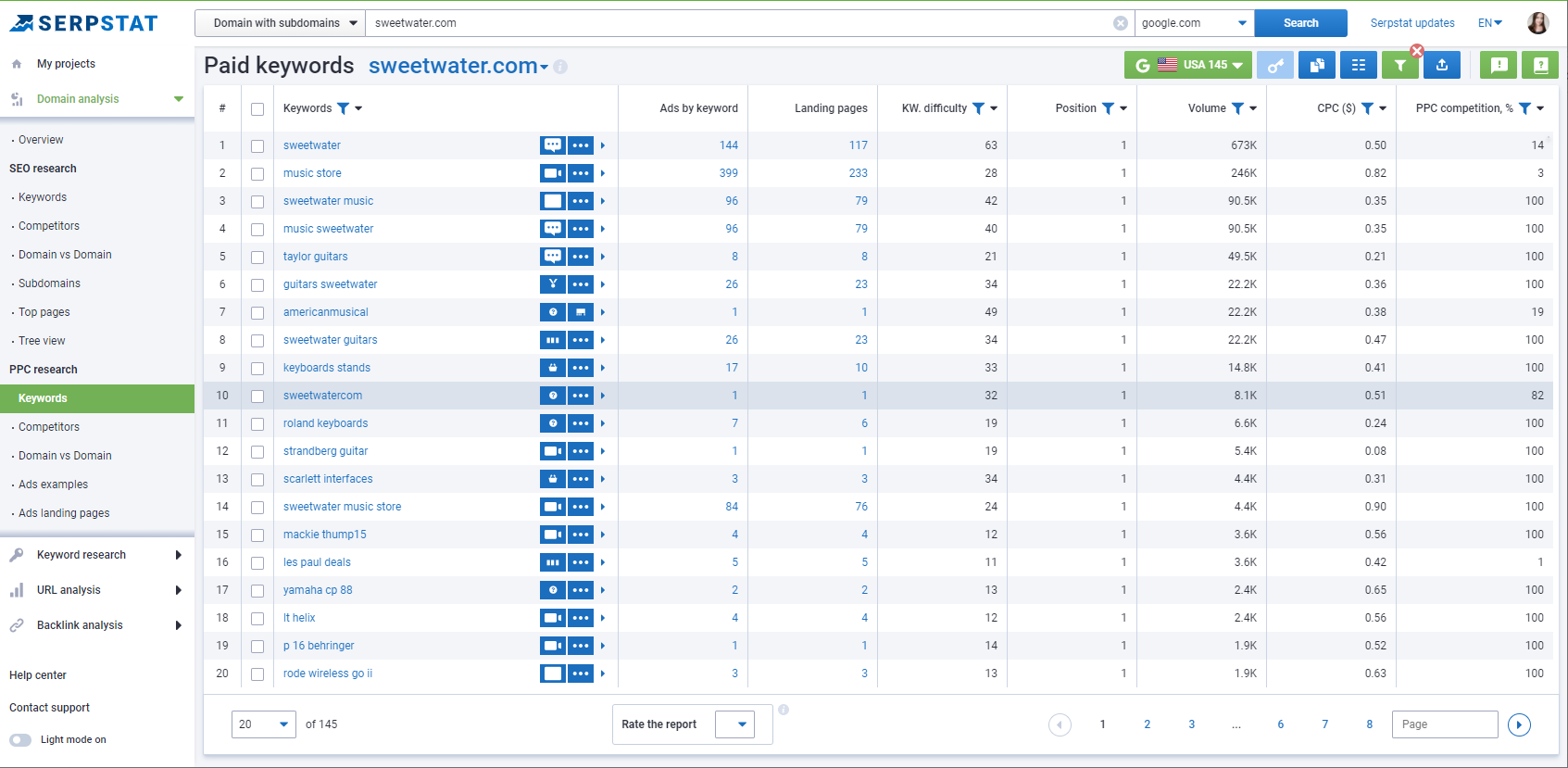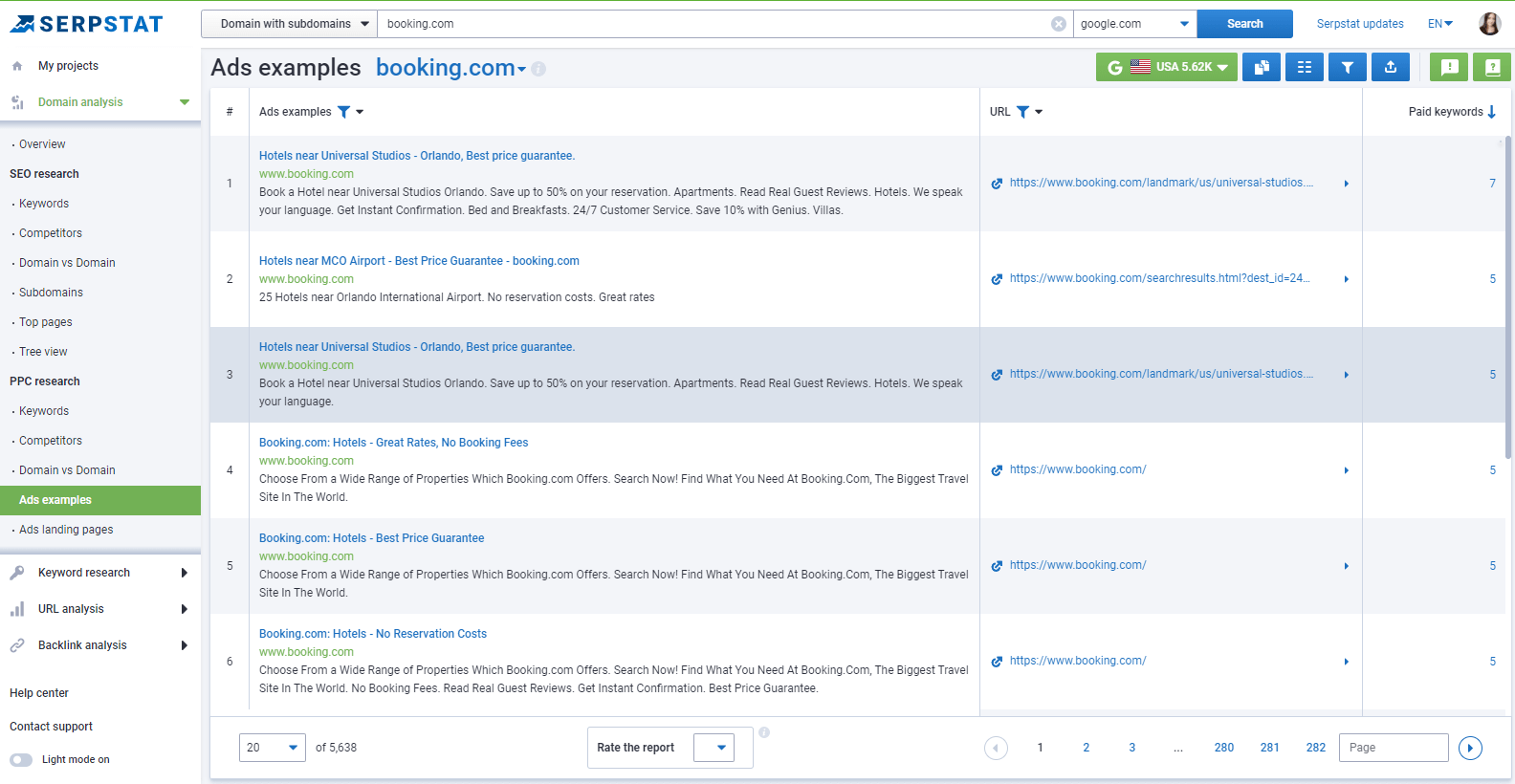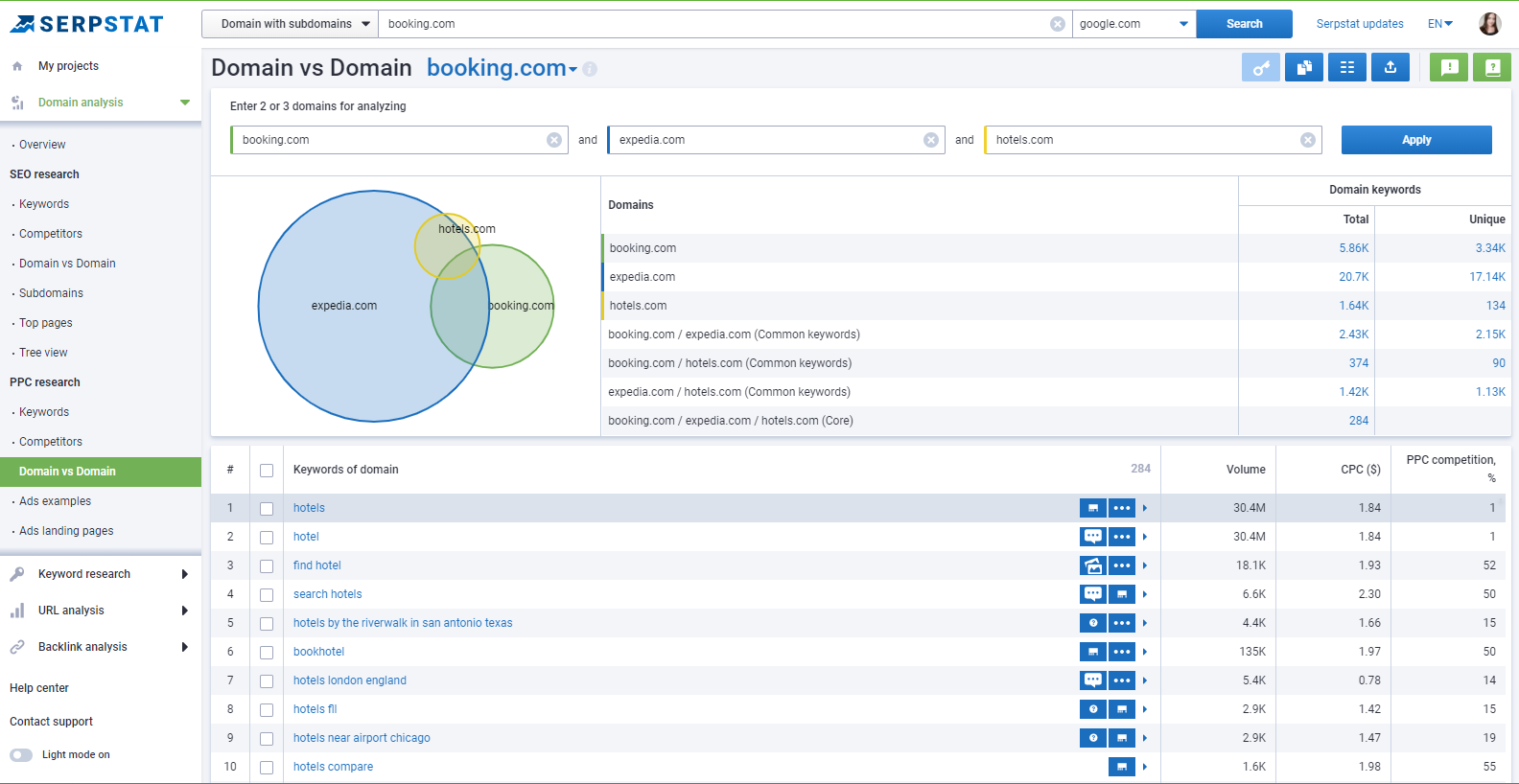Start Exploring Keyword Ideas
Use Serpstat to find the best keywords for your website
Beginner's Guide To Digital Marketing

Businesses that employ the power of internet marketing will have a competitive advantage as the world becomes increasingly digitized. The COVID-19 pandemic accelerated that change as well.
In this beginner's guide, we'll go over the basics of digital marketing, from SEO and SMM to email advertising.
How Does Digital Marketing Differ From Traditional Marketing?
Digital marketing is an ever-changing, shifting field that really differs from traditional static marketing and its "one-way" communication.
Customers can't interact with a company through a billboard or printed ad, right? But they definitely can do so by leaving comments on brands' websites or social media.
Why should businesses put effort into digital marketing?
With digital marketing, businesses can reach a far larger audience more easily and efficiently than they would with traditional marketing methods such as print, radio, billboards, direct mail, phone calls, or door-to-door.
Additionally, digital marketing allows businesses to track the results of their campaigns in real-time, providing valuable insights into what is working and what isn't.
What Are The Advantages of Digital Marketing?
- No limits for reach
This allows businesses to reach customers from all over the world, eliminating many of the entry barriers that exist with traditional methods.
In addition to that, you can also reach people from a certain country, state, or city. There are no limits.
- Low Entry Barrier
Even an aspiring small business can set up a website, manage social media accounts, and publish blogs without breaking the bank, as these marketing channels are cheap and easy to use. Everybody can create a website with page builders like Wix or Squarespace.
- Measurable ROI
ROI can be difficult to calculate with traditional marketing. Digital marketing, on the other hand, allows company executives to make well-informed decisions based on real-time insight into the success of each campaign to increase revenue and improve profitability.
Take for example a newspaper ad: wow are you going to determine how many people viewed the ad and how many of those viewers became new clients? With digital marketing, this is very easy to track and prove its effectiveness. More about that later.
- Effective Targeting
The targeting capabilities of digital marketing channels such as Facebook or Google, for example, allow the precise targeting of users in a specific city with specific interests.
- Multiple Touchpoints
Businesses that use search engine marketing may connect with consumers more immediately as a result of this.
With digital marketing, you can create multiple touchpoints on different channels with potential customers. When the customers are ready to buy, they already know your business.
Fundamental Concepts of Digital Marketing
- Inbound Marketing
When it comes to reeling people in, blogs, video marketing, and e-mail contact lists seem to be the most effective. Search engine marketing is also a good example of inbound marketing.
- Outbound Marketing
Consider this: you're surfing the internet and coming across a product and advertising banner advertisements all over the place. Customers aren't looking for a product when they come across one; instead, they are forced to look at it.
Facebook Marketing is all about outbound marketing. You can create awareness for your product by displaying an ad to potential customers. Maybe your potential customers didn't know that they needed your product but after seeing the ad they want to buy your product. That's the power of outbound marketing.
- Customer Journey
To each consumer, this process is unique, some journeys are briefer or longer than others. It all depends on the person and the product/service in question.
Let's take a look at each step of the way:
Awareness is the first step of the consumer journey. The client has identified an issue and is now looking online for more information.
Customer attention is the second stage of the journey. The consumer has conducted research, compared the products, and considered their options.
The third stage of the customer journey is when a consumer makes an ultimate purchasing decision.
Action/Conversion is the fourth stage. The customer has made a purchase and is now in the post-purchase phase.
Customer Advocacy: The final stage of the client journey. This period focuses on after-purchase activities. It's critical to show your gratitude and appreciation, and continue to interact with them. For instance, a satisfied customer can get you referrals.
- Marketing Funnel
The users go through numerous touchpoints until they convert at the end of the funnel, and these funnels are used to guide potential consumers throughout their journey.
The conversion from a prospect to a customer does not always occur immediately (or ever). A service or product purchase, downloading a paper, or becoming a member of a newsletter are all examples of conversions.
The prospect may bounce at each stage of this process so that the final conversion never takes place. Effective internet marketing seeks to reduce bounce rates to encourage as many people as possible to become customers.
You can find more about sales funnels and what makes them successful in our sales funnel guide:
- Online Marketing Analytics
Coupons and other direct mail offers were the only trackable marketing components in the past. If a customer used a coupon, you knew the message had an impact.
Analytics now offers marketers insight into user behavior at a very granular level: how many times they click on a link, how much time they spend on a web page, how frequently they open emails, and much more.
Understanding how customers react to a variety of content, advertisements, messaging, offers, and other variables gives companies insight into what works best. This knowledge also enables marketers to deliver better marketing messages in the future.
There are plenty of analytics tools available, and many marketers will utilize a combination of them based on their requirements and their target audience. One of the most popular analytic tools is Google Analytics.
Most Effective Digital Marketing Channels
Search Engine Marketing
There are two types: search engine advertising (SEA), also known as Pay-Per-Click (PPC), aimed at paid search results, and search engine optimization (SEO), based on organic search results.
Keywords are the foundation of search engine marketing and play a crucial role in both Search Engine Optimization and Search Engine Advertising.
A keyword is a word or phrase (search query) that users enter into the search bar of a search engine. Search engines use their algorithms to process and compare the keyword with their index, and the user subsequently receives a result page that lists the most relevant results for the search query.
The majority of the effort is required for organic search results. Websites are frequently added to search engines' result lists by default, which happens as a result of Google Crawler's continuous scanning. They regularly analyze search queries, search the internet for new websites, and assess their quality.
SEO is a set of tactics aimed at helping search engines discover, index, and rank your website higher on SERPs (search engine result pages).
The use of relevant keywords, title tags, and meta descriptions, as well as internal linking on the website, are all important elements of On-Page SEO.
With Serpstat Keyword Research and Text Analytics you can expand your website's semantics and optimize meta tags to boost your search engine rankings:
Analyzing backlink profiles becomes very convenient with the Serpstat Backlink Analysis tool:
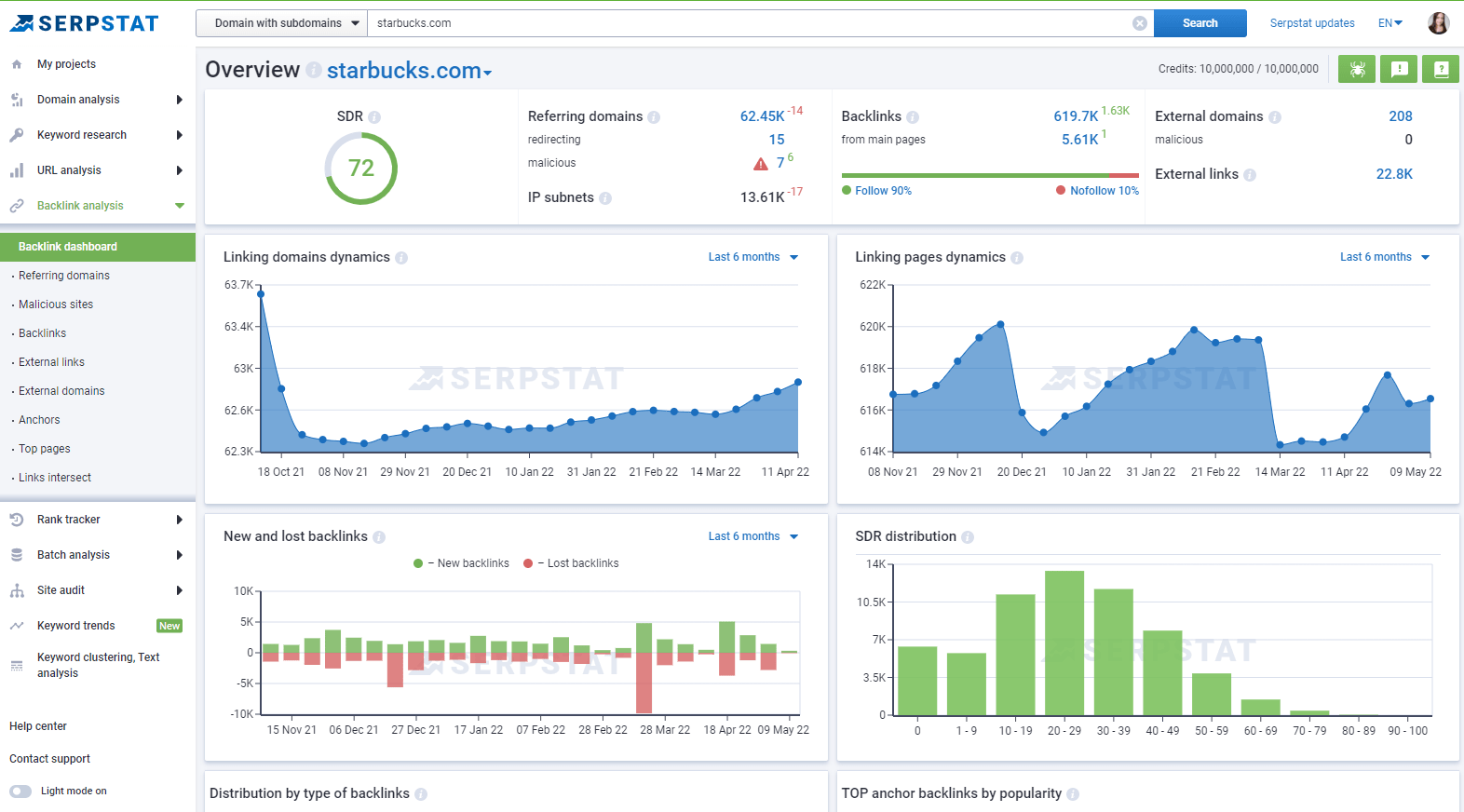
What are the users looking for when typing in a specific keyword? What exactly do they need to satisfy their needs? Of course, you want to drive revenue and that’s your main goal with SEO. But you should always help the customer first.
Remember, content is king. If you're trying too hard to make a sale, the customer will leave the page and go to another website. By helping the users you create trust and authority with them, and as a result, their behavioral factors encourage the search engine to rank your website higher.
On the other hand, there are paid listings in search engines. While getting to organic search results is technically free, getting into paid search results, as the name implies, is not.
Website owners are able to advertise their website without actually optimizing the webpage for SEO.
By paying for the advertisement, they appear first for relevant search queries (keywords). As soon as the ad campaign stops, the website loses its "ranking".
Search engine advertising (SEA) or Pay-Per-Click (PPC) are the technical terms for the promotion in paid search results.
With Serpstat Domain Analysis you can discover your competitors in PPC, analyze their keywords, ads, landing pages, and more:
Social Media Marketing
Nowadays the most important social media platforms for companies are Facebook, Instagram, TikTok, Twitter, LinkedIn, and Pinterest. It's necessary to tailor your messages specifically for the platform you post them on.
A great advantage of social media marketing is that your brand recognition increases and conversion rates rise as a result of your efforts.
When creating a social media marketing plan, several factors must be considered.
First and foremost, the content must be valuable to your consumers.
After all, this is what gives your social media presence its reason to exist and assures that you can succeed in this area of digital marketing.
Remember: “Content is King”.
Also, people enjoy social media conversations, and businesses that engage with their consumers on social media are more trusted and considered a member of the community.
Advertising is an essential component of a successful social media marketing plan. After all, without social media ads these days, getting enough organic reach with your company would be nearly impossible! Social advertising allows you to reach new target audiences and create brand awareness.
Affiliate Marketing
Your company will work with third-party influencers to sell your products or services for a fee in collaboration.
Influencers will use their followers to stimulate interest in your product by publishing, blogging, or filming content for your firm's success and for new leads to be generated.
Email Marketing
Email marketing experts not only know how to develop campaigns but also how to tailor and deliver the right message to the right person.
Email marketing is one of the most flexible tools a company may utilize to expand its business. It can be used for acquisition, retention, direct sales, or generating traffic.
Message Marketing
Messages are transmitted directly to interested persons to develop personal and individual communications (one-to-one or one-to-many).
Chatbots are frequently employed, which send automated messages to the target group. Personalized letters are the most significant benefit of messenger marketing. Messengers also have no spam filters, unlike e-mail.
The high open rates and automated communications are two other advantages of messenger marketing.
Useful Tools and Resources
- Google Analytics: one of the most prevalent analytics tools on the market that allows you to see a full picture of your website visitors' behavior.
- Google Search Console: a must-have tool for analyzing and improving your website's performance in search results.
- Google Trends: to track the popularity of certain search terms and keep up with the trends.
- Facebook Ad Library: see other people’s Facebook ads for inspiration.
- Canva: to design a social media post, an ad, etc.
- Buffer: to schedule social media posts in advance.
- Serpstat: an all-in-one SEO tool for keyword research and clustering, competitor analysis, technical site audit, backlink analysis, and more growth hacking features.
- Serpstat Blog: a great collection of SEO, PPC, and Content Marketing articles from industry experts.
- Backlinko Blog: Brian Dean is an SEO Legend with insightful posts full of incredible tips.
- Udemy: a marketplace where you can buy online courses on every topic you cant learn about.
- Wordstream: great and unique online marketing articles.
Conclusion
After you learned something, try to use your new knowledge for a project. Keep track of what works and what doesn’t so you can refine your plan as you go along.
Digital marketing can be a lot of fun. Thanks for following along!
Speed up your search marketing growth with Serpstat!
Keyword and backlink opportunities, competitors' online strategy, daily rankings and SEO-related issues.
A pack of tools for reducing your time on SEO tasks.
Discover More SEO Tools
Domain Analysis Tools
SEO Domain Analysis – gain insights into your website's strengths and weaknesses
URL Inspection Tool
Uncover hidden SEO opportunities with our powerful URL Inspection Tool
Keyword Rank Checker
Google Keyword Rankings Checker – gain valuable insights into your website's search engine rankings
Competitor Website Analytics
Complete analysis of competitors' websites for SEO and PPC
Recommended posts
Cases, life hacks, researches, and useful articles
Don’t you have time to follow the news? No worries! Our editor will choose articles that will definitely help you with your work. Join our cozy community :)
By clicking the button, you agree to our privacy policy.

